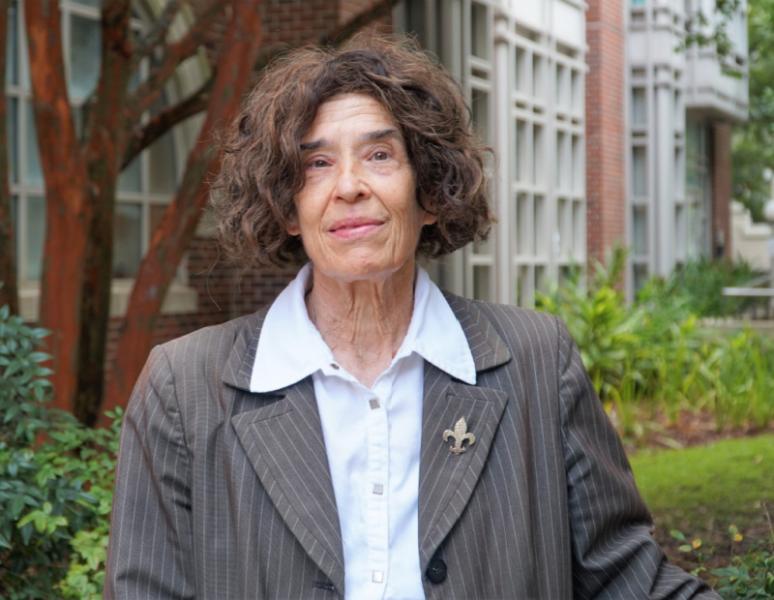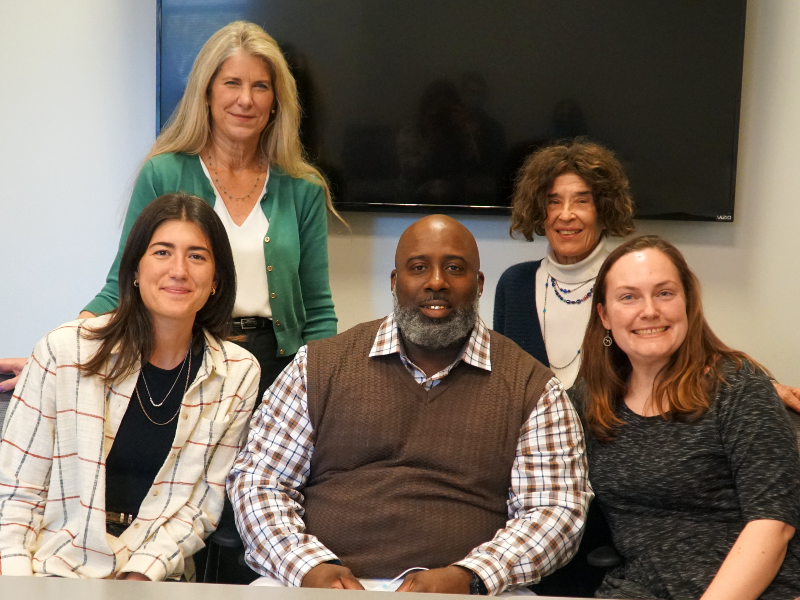Tulane Criminal Justice Clinic client free after conviction overturned
He spent 28 years in prison for a crime he didn’t commit, putting his trust for almost a decade in the Tulane Criminal Justice Clinic to help him prove it.
In December, Kuantau Reeder, now 49 years old, walked out of Louisiana’s State Penitentiary in Angola a free man, his conviction thrown out after Tulane professors and students proved that state prosecutors had withheld evidence that could have cleared him of murder.
Reeder’s case stemmed from the 1993 shooting of a man outside of a convenience store in New Orleans who subsequently died of his injuries. Reeder had repeatedly testified – and several witnesses concurred – that he had been playing basketball nearby with several friends at the time of the shooting.
Despite several attempts to challenge his conviction, Reeder was unsuccessful. He said he then put his faith in the right people, particularly Prof. Sheila Myers, who doggedly pursued every thread in his case.
In recent years, the threads became fruitful. Myers learned that the prosecution’s key witness and only eye-witness in the case had had a federal felony conviction for lying that had not been disclosed to trial counsel. This formed the basis of legal challenges through the state court system and then through the federal courts, resulting in the Clinic petitioning the U.S. Supreme Court to take the case.

While pending in the U.S. Supreme Court, the Civil Rights Division of the Orleans Parish District Attorney’s Office agreed to review its files for any other exculpatory evidence. It disclosed to Myers that the same witness had twice identified another suspect in photographic line-ups before testifying at trial that the shooter was Reeder. The notes of the trial prosecutor reflecting this contradictory identification had not been disclosed to either trial counsel or later to the Clinic despite earlier records requests.
Orleans Parish District Attorney Jason Williams agreed to review the case with the evidence Myers had discovered; he agreed that Reeder’s conviction was unreliable. A court in December threw out his conviction and dismissed charges against Reeder based on the exculpatory evidence that had not been revealed at trial.
“Mr. Reeder’s case provides us with both a frightening example of prosecutorial misconduct committed 28 years ago, and the inspiring example of the action taken by the current DA to correct a terrible injustice,” said Myers.
Myers worked on the case with roughly 22 students since 2013, said Clinic Director Katherine Mattes.
“Sheila pursued every possible lead, and while looking for state convictions in Mississippi, she found out about the prior federal conviction for lying. She went looking for the proverbial needle in the haystack not knowing if there was a needle. There is no doubt that if Sheila hadn’t been so tenacious, the DA would not have had reason to review his case and Mr. Reeder would still be incarcerated, sentenced to die in prison,” said Mattes.
As for his second chance, Reeder told students during a recent visit that he was not angry about what happened to him.
“I’m too happy to be angry,” he said. “I’ve got too much to do, to make up for, to be angry.”

